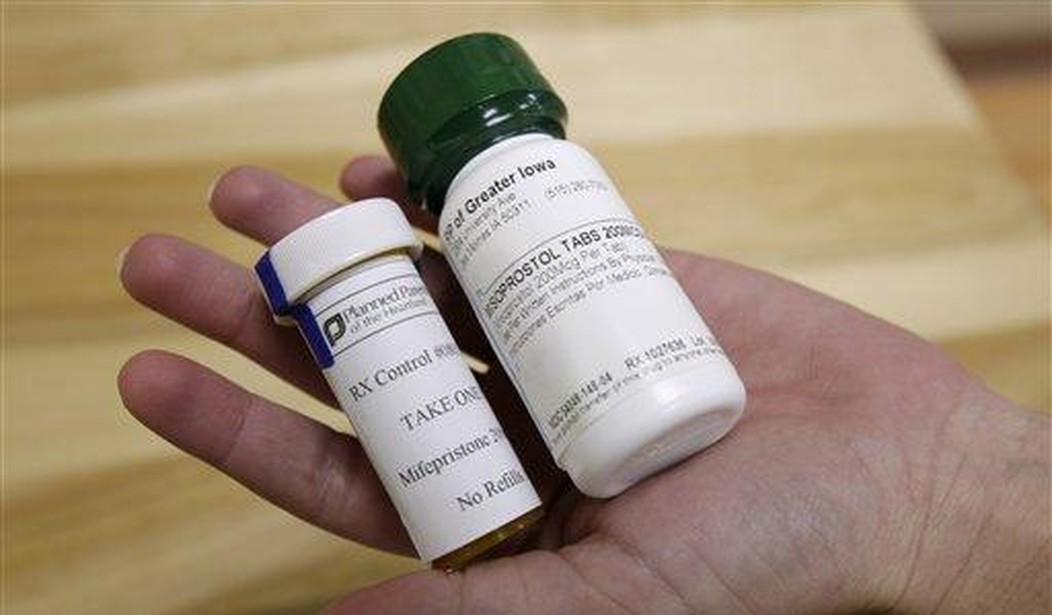Medication abortion pill providers in the United States and overseas are preparing for an influx of patients from states with restrictive abortion laws if Roe v. Wade is overturned by the United States Supreme Court.
A draft opinion from the Supreme Court case Dobbs vs. Jackson Women’s Health Organization was leaked last week and published in Politico. In the draft document, the Justices overturned Roe. The final decision was expected this summer.
The Wall Street Journal reported Friday that Planned Parenthood and other abortion providers are working to expand operations in liberal states where abortion will likely remain legal if Roe is overturned. A Planned Parenthood employee told WSJ that those with the “privilege and resources” to travel will do so to get an abortion. Those who are not able to travel may turn to the abortion pill.
After Texas passed legislation last year banning abortion after about six weeks, neighboring states reported a rush of patients. Many people sought medication abortions through telemedicine providers as well. Minneapolis-based telemedicine provider Just the Pill served 900 patients in the first four months of this year following the passage of the Texas law, compared with 1,300 in all of 2021, said Julie Amaon, Just the Pill’s medical director. Now Just the Pill is expanding to handle more requests from patients if Roe v. Wade is overturned.
“We’ve been crazy busy,” Dr. Amaon said.
Medication abortion accounts for the majority of U.S. abortions, according to the Guttmacher Institute, a policy group that supports abortion rights and tracks abortion statistics. Abortion pills are prescription-only in the U.S. Two medications—mifepristone and misoprostol—are typically used in a medication abortion regimen. Misoprostol can be used alone if mifepristone is unavailable. Patients can legally obtain the drugs at clinics or through U.S.-based telemedicine providers like Just the Pill, Hey Jane and Choix.
Until the Covid-19 pandemic, the Food and Drug Administration required patients to collect mifepristone from a clinic. The restriction was lifted last year. More than 30 states, however, require a clinician to see a patient in person before prescribing mifepristone. States including Texas and Indiana have partial bans on abortion pills.
Recommended
Townhall covered in February how abortion pill usage in Texas spiked after S.B. 8, the state’s law that bans abortions after fetal heartbeat detection took effect. A study, published by the American Medical Association’s JAMA Network Open, showed that the international abortion pill nonprofit service Aid Access recieved 1,180 percent more requests in the first week after the law went into effect. During the following three weeks, requests remained 245 percent higher than before S.B. 8 went into effect. Overall, Aid Access saw 1,831 requests from Texas for “self-managed abortion.” Over the next three months, requests were 174 percent higher than the “pre-SB 8 baseline.”
Rebecca noted in December how this method of abortion comes with several risks. Many recipients of abortion pills are not required to meet with a doctor in-person.
“This method [medication abortion] carries with it four times the complications of surgical abortions. Side effects and risks associated with this method include abdominal pain, nausea, vomiting, diarrhea, weakness, fever/chills, and headaches. The bleeding may last for weeks after the abortion.
Some studies have found 10 percent of women face incomplete abortions at 9 weeks gestation. This can lead to death from infection if the remaining fetal parts or tissue are not properly removed.
Last month, as I covered, the Charlotte Lozier Institute (CLI) authored a study that showed emergency room visits following this method went up by 507 percent from 2002 to 2015. Most of these ER visits, over 60 percent, were miscoded as spontaneous miscarriages.”
Some states, such as South Dakota, have created legislation to ban medication abortion.
























Join the conversation as a VIP Member